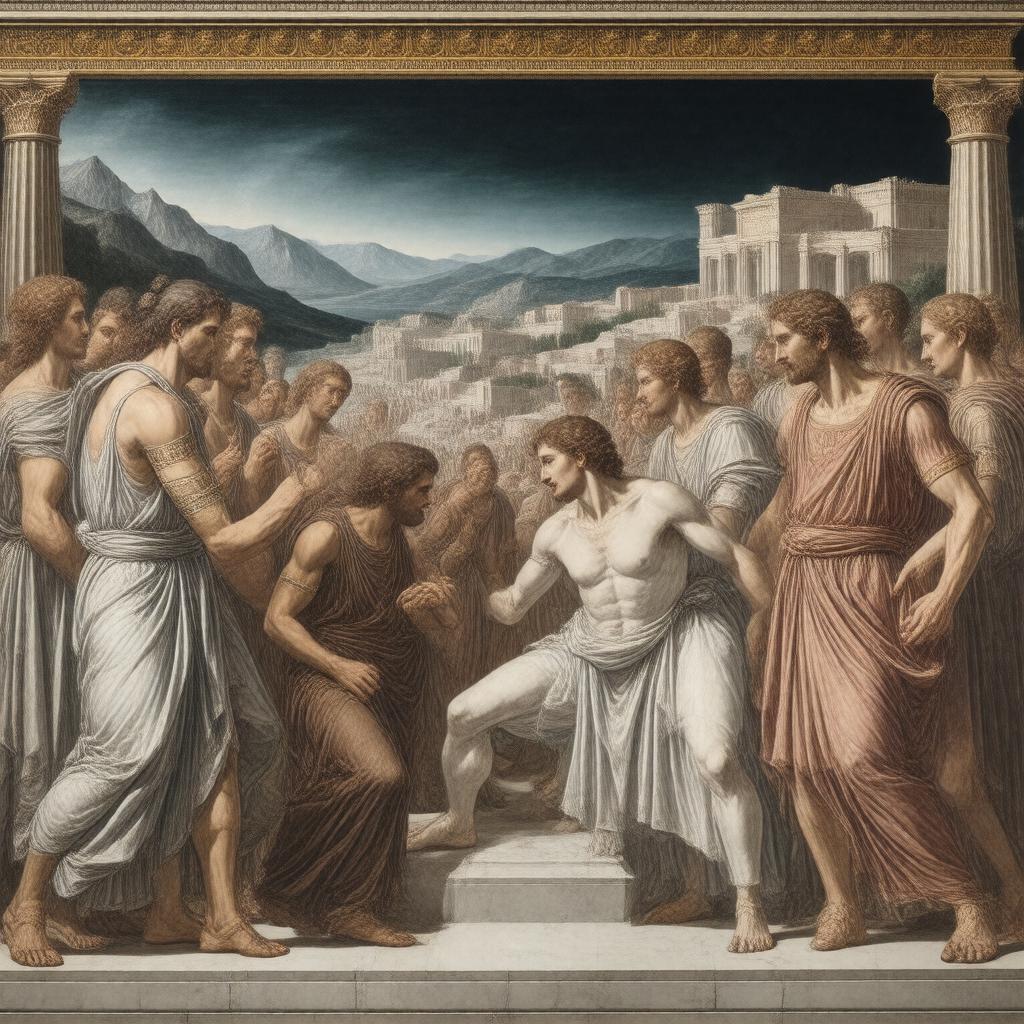Prompt
"Create an image of a dramatic ancient Greek scene depicting the tragic events of the House of Atreus, with a backdrop of the city of Argos and the Theatre of Dionysus, showcasing the themes of justice, revenge, and divine intervention, in a style reminiscent of ancient Greek pottery, with a focus on the intense emotions of the characters, including Orestes, Clytemnestra, Agamemnon, and Electra, set against a dark and ominous tone, symbolizing the curse of the Atreidae and the cycle of blood vengeance, ultimately leading to the establishment of the Areopagus court."

